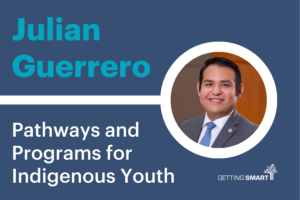NPR Fails The Online Learning Test

NPR ran a misleading story about online learning. Blake Farmer, a Nashville reporter, has been beating this drum and today invited disreputable and uninformed critics of a new statewide online school to pile on. Yes, a low percentage of students scored proficient on state tests, but when most of the students are new to the program that reflects the entering level of proficiency more than anything else.
Last week K12 shared an Academic Report that showed 2011-12 student growth of about one year of progress in math and two years in reading. That’s good progress and probably more rapid than in previous settings.
As I reported last week, “K12 estimates that 50-70% of students entering their schools did not achieve proficiency in math on state exams they took in the year before enrolling.” The new population fleeing to online learning is high poverty, high mobility, over-aged and under-credited students.
One of K12’s recently developed interventions is the National Math Lab (NML), a double block of math for struggling students in grades 5-10. In addition to regular coursework, NML students receive online tutoring four days per week.
Blake did add a quick quote from Tennessee Virtual Academy Summer Shelton (whom he labeled a ‘true believer’), we ran her article Saturday where she told the rest of the story. She described how “each student works on their own individualized learning program and at their own pace, so measuring students’ individual progress is important.”
I’m on the board of the International Association for K-12 Online Learning (iNACOL) and we take the issue of quality seriously. After a two day meeting on the subject in August, I noted some of the unique challenges of learning online:
- Most students enroll late–65 percent says one national provider–and late enrollers perform significantly worse and withdraw at much higher rates than students that enroll on time.
- Providers receive little or no information about a student, particularly trend data (i.e., a learning trajectory).
- Students not successful in a traditional setting enroll in online schools seeking an alternative. Districts complain about students returning from charters, but the same happens to online charters–11th graders with two credits show up and leave the enrollment records of the local school district.
- New students often perform very poorly (which may reflect prior achievement as well as new modality) and, as a result, the percentage of new students predicts performance.
- Students whose parents do not attend information sessions or meet with teachers withdraw at much higher rates (but providers typically can’t require an in person kickoff session).
iNACOL followed up by publishing this report Measuring Quality From Inputs to Outcomes: Creating Student Learning Performance Metrics and Quality Assurances.
What is important is growth–are students learning? Are they learning more and faster than they were in their previous environment? Growth data answers those questions not dipstick proficiency exams.
For more, see summaries of the hundreds of studies of online and blended learning that show efficacy:
- The U.S. Department of Education’s Evaluation of Evidence-Based Practices in Online Learning: A Meta-Analysis and Review of Online Learning Studies of more than 40 studies found that (mostly higher ed) “students who took all or part of their classes online performed better, on average, than those taking the same course through traditional face-to-face instruction.”
- iNACOL’s Summary of Research on the Effectiveness of K-12 Online Learning provides a full review of literature as well as thoughts on the future of online learning research.
- A comprehensive evaluation concluded that Florida Virtual School students outperformed their counterparts in Florida’s traditional middle and high schools on such measures as grades, Advanced Placement scores and FCAT scores.
- A recent Summative Meta-Analysis and Trend Examination found that online learning (mostly higher ed) produced better results than face-to-face courses—and the gap is widening as technology improves. See Q&A: Mickey Shachar On Traditional vs. Distance Learning.
- Study Finds AR Virtual Academy Students Outperform Public School Students
- A study by the National Survey of Student Engagement reported that the online-learning experience yielded deeper use of “higher-order thinking, integrative learning, and reflective learning.”
K12 is a Getting Smart advocacy partner.





0 Comments
Leave a Comment
Your email address will not be published. All fields are required.